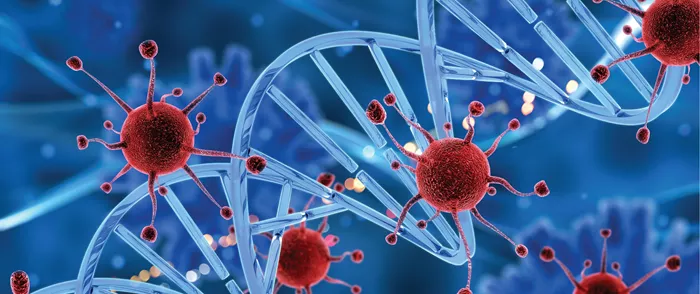A rare strain of Salmonella, known as Salmonella Umbilo, has led to illness in 20 individuals in Denmark and 17 in Austria since July. The Statens Serum Institut (SSI) has reported these cases, which include 14 men and six women, with ages ranging from under one to 85 years, and a median age of 52.
In Denmark, the distribution of cases is as follows: nine in Midtjylland, six in Syddanmark, three in Nordjylland, and two in Hovedstaden. The reported cases have emerged over July, August, and September. Austria’s cases have been linked to rocket salad imported from Italy.
The Danish National Food Institute, the Danish Veterinary and Food Administration (Fødevarestyrelsen), and SSI are actively investigating the outbreak’s source. While it is too early to pinpoint a specific cause based on interviews conducted in Denmark, officials are focusing their efforts on salad and lettuce as potential culprits.
To aid in identifying the source, SSI is utilizing whole-genome sequencing (WGS) to analyze bacterial isolates from patients. Preliminary results indicate that the bacteria isolated from the affected individuals are closely genetically related and belong to the sequence type 2014.
This is the first occurrence of Salmonella Umbilo in Denmark since 2017. In 2023, Salmonella was identified as the leading cause of outbreaks in the country, totaling 18 outbreaks and an increase in cases to 1,207 from 899 in the previous year. The largest outbreak involved Salmonella Muenchen, resulting in 31 cases, though a specific source was never identified.
Salmonella infections often go unnoticed, as contaminated food may not appear spoiled. Vulnerable groups, including infants, seniors, and those with weakened immune systems, face a higher risk of severe illness. The CDC advises anyone experiencing symptoms of Salmonella food poisoning, such as diarrhea, abdominal cramps, and fever within 12 to 72 hours of consuming contaminated food, to seek medical attention. Diagnosis requires specific tests due to symptoms that can mimic other illnesses.
Symptoms typically last four to seven days in otherwise healthy adults, but in some instances, severe diarrhea may necessitate hospitalization. Individuals at greater risk, including older adults, pregnant women, and those with compromised immune systems, are particularly susceptible to severe and potentially life-threatening conditions. Notably, some individuals may carry the infection without symptoms, posing a risk of transmission to others.
Salmonella infections can lead to serious health issues, so it’s crucial to take preventive measures. First, practice safe food handling: wash your hands thoroughly with soap and water before preparing food and after handling raw meat, poultry, or eggs. Cook all foods to the appropriate internal temperatures—poultry should reach 165°F (75°C), while ground meats should hit at least 160°F (70°C). Avoid cross-contamination by using separate cutting boards for raw meats and ready-to-eat foods.
Refrigerate perishable items promptly, ideally within two hours of cooking or purchasing. Be cautious with foods from sources with known contamination risks, especially undercooked eggs and meats.
If you experience symptoms such as diarrhea, abdominal cramps, fever, or vomiting within 12 to 72 hours after eating potentially contaminated food, seek medical attention. Inform your healthcare provider about possible exposure to Salmonella, as specific tests are necessary for diagnosis. Hydration is essential, so drink plenty of fluids to prevent dehydration.
Lastly, remember that some individuals, such as infants, elderly adults, and those with weakened immune systems, are at higher risk for severe illness, making vigilance even more critical for these groups.
You may be interested in


